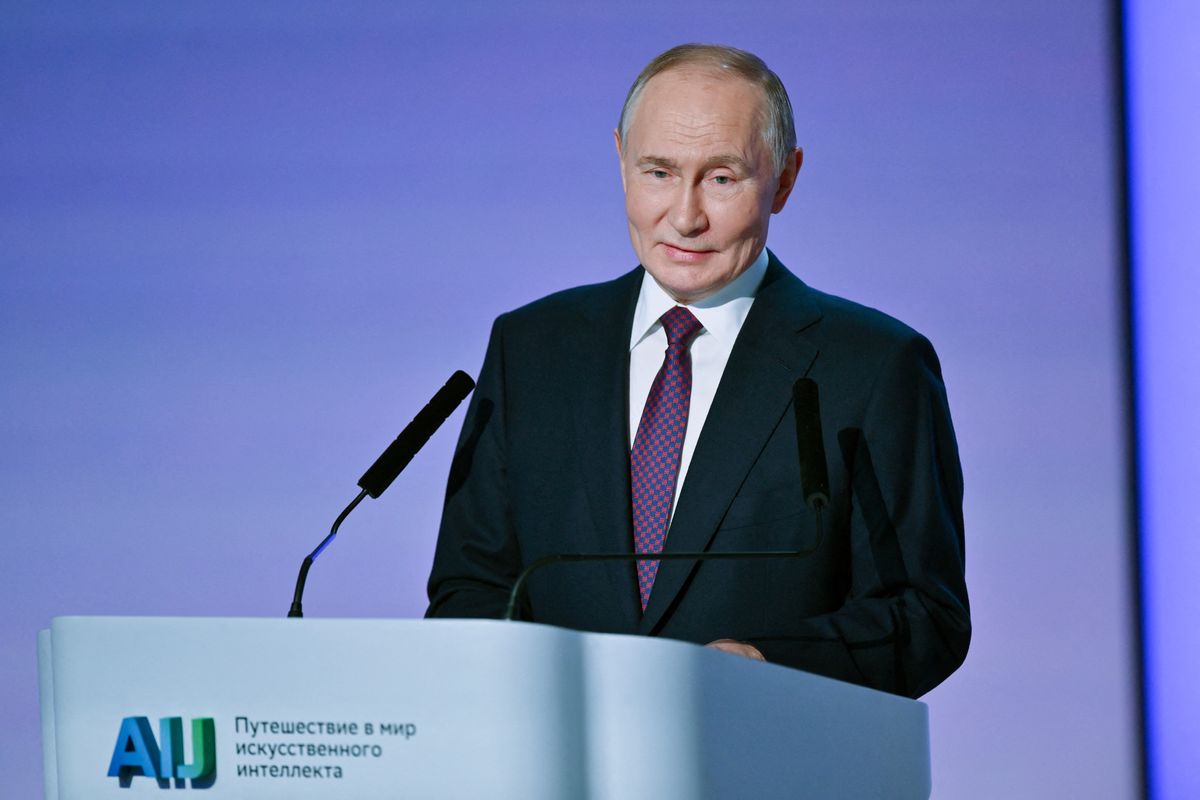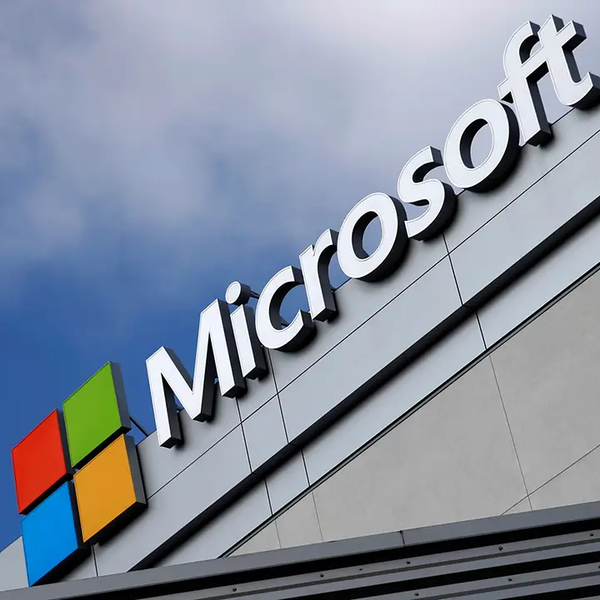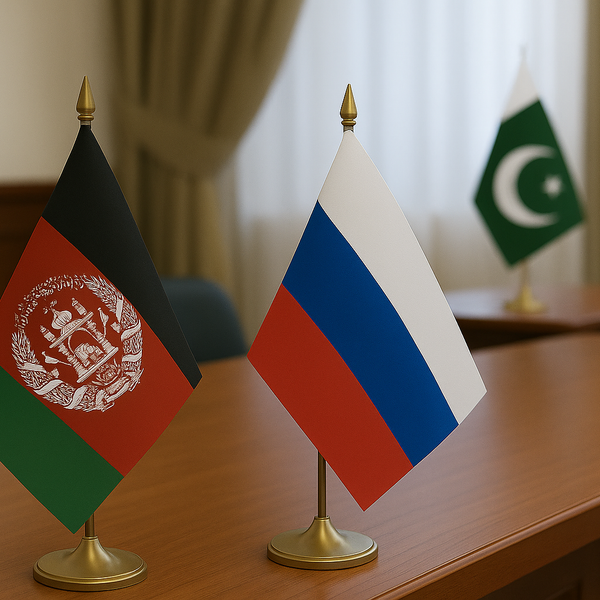Russia teams up with BRICS to create AI alliance, Putin says
Western sanctions have severely limited Russia's access to crucial microchips
Reuters
News Agency Partner
Reuters is a leading source of news and information, delivering fact-based reporting and expert analysis on international events and trends.

Russian President Vladimir Putin delivers a speech at AI Journey, Sberbank's international conference on artificial intelligence technology, in Moscow, Russia December 11, 2024.
Reuters
Russia currently ranks 31st globally in AI implementation
The country aims to add $109 billion to GDP through AI by 2030
Sberbank and Yandex lead Russia's domestic AI development
President Vladimir Putin said on Wednesday that Russia would develop artificial intelligence with BRICS partners and other countries, in a bid to challenge the dominance of the United States in one of the most promising and crucial technologies of the 21st century.
Speaking at Russia's flagship AI conference, Putin said the new AI Alliance Network would include national associations and development institutions in the field of AI from BRICS countries and other interested states.
"Russia must participate on equal terms in the global race to create strong artificial intelligence. It is precisely the advanced solutions that Russian scientists are currently working on," Putin told an AI conference in Moscow.
"We invite scientists from all over the world to join in the collaboration," he added.
Western sanctions intended to restrict Russia's access to the technologies it needs to sustain its war against Ukraine have resulted in the world's major producers of microchips halting exports to Russia, sorely limiting its AI ambitions.
Russia's dominant lender Sberbank is spearheading AI development in Russia, but Sberbank CEO German Gref acknowledged in 2023 that graphics processing units (GPUs), the microchips that underpin AI development, were the trickiest hardware for Russia to replace.
On Wednesday, the bank said national AI associations from BRICS members Brazil, China, India and South Africa, but also from Serbia, Indonesia and other non-BRICS countries, had joined the AI Alliance Network.
It said the network would facilitate joint research into technology and AI regulation, and provide opportunities for AI products to be sold in member countries' markets.
Russia seeks to join race for AI supremacy
The United States and China are the world's top AI powers, and U.S. President-elect Donald Trump has named a "White House AI and Crypto Czar" to help ensure the United States remains the richest and most technologically advanced power in the world.
But Putin's move to ally with China could change the dynamics of the AI race.
Russia is one of 10 countries, including the U.S., China, Britain and Israel, that are developing their own generative AI models. The Yakov and Partners consultancy, run by former McKinsey employees in Moscow, says this gives it the potential to become a much more significant player.
Russia sees the use of AI technologies across all sectors adding 11.2 trillion roubles ($109 billion) to gross domestic product in 2030, compared to 0.2 trillion roubles ($1.9 billion) in 2023.
Its AI strategy also says that 80% of all Russian workers should have AI skills by 2030, compared with 5% in 2023, while AI investment should grow seven-fold to 850 billion roubles.
Sberbank, which has developed a generative AI model called GigaChat, and technology leader Yandex, with its YandexGPT model, dominate Russia's domestic AI market.
Russia currently ranks 31st of 83 countries by AI implementation, innovation and investment on UK-based Tortoise Media's Global AI Index, well behind not only the United States and China but also fellow BRICS members India and Brazil.
Stanford University's AI vibrancy tool, which evaluates 36 countries based on 42 AI indicators including research and development, ranks Russia 29th.










Comments
See what people are discussing